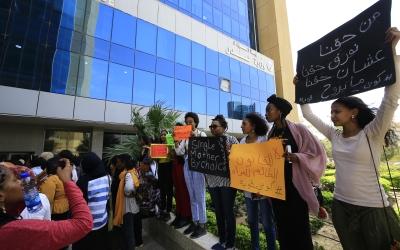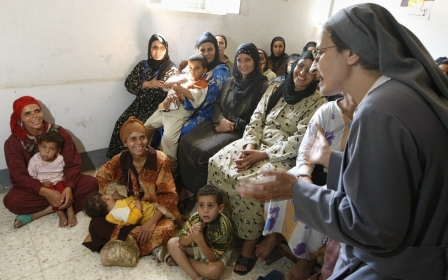Egypt introduces tougher sentences against female genital mutilation
Egypt introduced tougher penalties for female genital mutilation (FGM) on Sunday, as part of efforts to clamp down on the practice.
Egypt's parliament passed legislation that stipulates prison sentences of up to seven years for non-medical individuals involved in performing the practice and a ban on medics involved in the procedure from practising medicine for up to five years.
Whoever requested the FGM will also face imprisonment, according to the amendments, which must still be approved by the president.
Nearly 90 percent of Egyptian women and girls aged 15 to 49 have undergone FGM, a process which typically involves the removal of a girl's external genitalia, according to a 2016 survey by the United Nations.
Activists welcomed the new rules on Monday but questioned their effectiveness, as the practice continues to take place across Egypt.
Entessar El-Saeed, a woman's rights activist and director of the Cairo Foundation for Development and Law, said stricter penalties alone would not sway minds.
"It is a good step, but we are still struggling with a deeply-rooted concept in the Egyptian society and even among some doctors and judges that FGM is not [a] crime," Saeed told the Thomson Reuters Foundation.
Egyptian authorities and civil society groups have tried awareness campaigns, field visits and tougher penalties to end FGM.
Brendan Wynne, co-founder of The Five Foundation advocacy group, told the Thomson Reuters Foundation that he welcomed the new rules but said "nothing is likely to change" unless the government "takes it seriously this time".
"Unless the government takes it seriously this time, nothing is likely to change. Medical professionals are still performing FGM in Egyptian clinics - and even offering their services publicly," said Wynee.
"We need to see a few high profile cases of doctors being given long sentences and struck off for performing this horrific act of violence. Unless this happens, it doesn't really matter what type of law there is," he said.
Middle East Eye delivers independent and unrivalled coverage and analysis of the Middle East, North Africa and beyond. To learn more about republishing this content and the associated fees, please fill out this form. More about MEE can be found here.





